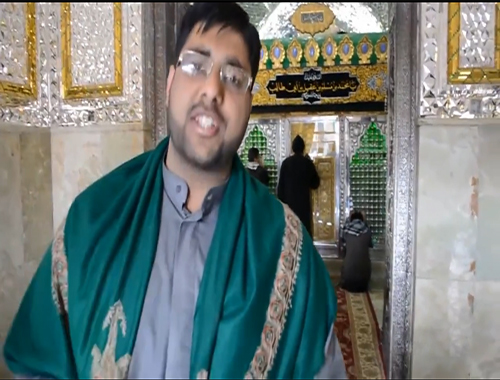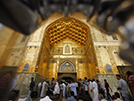A Short Review of Saqifah:
- Details
- Hits: 4273
A Short Review of Saqifah:
The event narrated above, which is based on Sunni historical sources, shows that the khilafat of Saqifah was not a consultation among the Muslims, but was a plot to usurp the khilafat of Imam ‘Ali (a.s.).
Firstly, while on his way to Saqifah, `Umar sent word only to Abu Bakr, and not to anyone else. And Abu Bakr, who was in the house of the Prophet with the great companions and Imam ‘Ali, did not tell anyone about the plot of Saqifah and left the corpse of the great man!
Does consultation mean that two or three people should go to the AnsÄr, create division among them and then impose themselves upon those people?
In consultation over such a great and important matter, should not at least the great companions and the Banu HÄshim have been called?
Secondly, the best comment on Abu Bakr's khilafat can be found in the words of `Umar ibn KhattÄb himself. During his own khilÄfat, `Umar said, “We have heard that one of you said that if `Umar dies I shall swear allegiance to so-and-so. Someone said to him that the allegiance to Abu Bakr was without consultation. It is true that allegiance to Abu Bakr took place all at once without much thought, but Allah protected us from mischief. However, no one should give you the example of Abu Bakr to follow.” (Tabari, Ta'rikh, vol. 4, p. 1820-1823)
Thirdly, `Umar himself said, “After the Prophet, ‘Ali, Zubayr and their companions rose up against us, and assembled in Fatimah's house.” (ibid). We ask the Muslims whether this clear opposition to Abu Bakr's khilÄfat be ignored, especially as it is acknowledged by `Umar himself?
Finally, if the matter of the khilÄfat was to be resolved on the basis of consultation, the Prophet of Islam would certainly have explained before his death, the way it should have been done. Is it thinkable that the Prophet would explain some very obscure commands, but make no mention of such a great matter as the leadership?
* * *
This lesson has been adapted and abridged from Dar Rah-e Haqq, The Roots of Religion, Qum, Iran.











